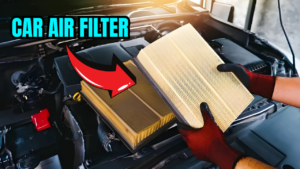Diesel engines are known for their durability and unmatched power. Whether you’re hauling heavy loads in a truck or cruising in a diesel-powered vehicle, these engines are built to last. However, even the toughest engines are not immune to damage when handled improperly. From skipping routine maintenance to bad driving habits, small mistakes can lead to big repair bills.
This guide will walk you through the most common mistakes diesel owners make and how to avoid them, ensuring your engine stays in peak condition for years to come.
Why Diesel Engines Require Special Care
Diesel engines operate differently from their gasoline counterparts. They rely on air compression and pressure-ignited fuel, resulting in higher torque and efficiency. These differences make diesel engines incredibly powerful but also sensitive to mistakes. Proper care not only extends the engine’s lifespan but also maximizes performance and fuel economy.
Common Mistakes That Harm Diesel Engines
Ignoring Warm-Up Time
Diesel engines need proper warm-up time, especially in cold weather. Jumping straight into acceleration after starting your engine doesn’t allow the oil to circulate properly, leading to unnecessary wear on internal components.
The fix:
Always allow your diesel engine a few minutes to warm up, particularly on cold mornings. This ensures that all parts are adequately lubricated and ready to handle stress.
Skipping Regular Oil Changes
Oil is the lifeblood of your diesel engine. Neglecting regular oil changes can reduce the effectiveness of lubrication, leading to increased friction and possible damage.
The fix:
Check your owner’s manual for the recommended oil change frequency and stick to it. Typically, diesel engines require oil changes roughly every 5,000 to 10,000 miles, depending on usage and conditions.
Using Poor-Quality Fuel
Not all fuel is created equal. Poor-quality diesel fuel often contains contaminants that can clog injectors and damage the fuel system.
The fix:
Only purchase diesel from reputable gas stations to ensure high-quality fuel. You could also invest in fuel additives to enhance performance and reduce deposits.
Neglecting the Fuel Filter
A clogged fuel filter reduces fuel flow, making your engine work harder and less efficiently. Over time, this can damage the fuel pump and injectors.
The fix:
Replace your fuel filter regularly. Consult your vehicle’s maintenance guide to know how often this should be done, but a good rule of thumb is every 15,000-30,000 miles.
Driving on Low Fuel
Diesel engines don’t take kindly to running on an empty or near-empty tank. It can lead to air entering the fuel system, causing performance issues or even engine stalling.
The fix:
Refill your tank before it gets too low, ideally when it reaches a quarter-tank. This keeps the fuel lines and pump functioning properly.
Neglecting the Turbocharger
If your diesel engine has a turbocharger, improper care can lead to expensive repairs. Turbochargers are susceptible to failure if the engine is turned off immediately after hard driving, as this traps heat and prevents proper cooling.
The fix:
Idle your engine for a few minutes after intense driving to allow the turbocharger to cool down safely.
Skipping Cooling System Maintenance
Diesel engines produce more heat than gasoline engines, making a functioning cooling system crucial. Neglecting the coolant, radiator, or hoses can lead to overheating and catastrophic engine failure.
The fix:
Check coolant levels regularly and flush the system according to the manufacturer’s recommendations. Inspect hoses for cracks or leaks to prevent coolant loss.

Avoiding the Air Filter Replacement
Dirty air filters reduce airflow to the engine, decreasing fuel efficiency and power. It also forces your engine to work harder, accelerating wear and tear.
The fix:
Inspect and replace your air filter as needed. This is especially important if you frequently drive in dusty or off-road conditions.
How to Prevent Diesel Engine Issues
Follow a Maintenance Schedule
Stick to a regular maintenance schedule to avoid the pitfalls of neglect. Routine oil changes, filter replacements, and inspections can catch and fix problems before they escalate.
Use High-Quality Products
From fuel and motor oil to lubricants and replacement parts, opt for premium products. Cutting corners on quality often leads to more expensive repairs down the road.
Monitor Dashboard Warning Lights
Your dashboard is your first line of defense against major engine issues. Take warning lights seriously and address problems immediately.
Invest in Diagnostics Tools
Diagnostic tools, such as OBD scanners, can help identify potential issues early. These tools plug into your vehicle’s system to provide real-time data and error codes.
Diesel Engines Deserve a Little TLC
Investing time and effort in proper maintenance and care will save you thousands of dollars in the long run. Your diesel engine is built to last, but only if you respect its unique requirements. Avoiding these common mistakes is the first step to ensuring smooth, efficient performance and maximizing your engine’s lifespan.
If you’ve found these tips helpful and want to stay on top of your diesel maintenance game, be sure to bookmark this post. For more expert advice and recommended products for diesel care, subscribe to our newsletter or explore our top-rated guides for DIY maintenance.
